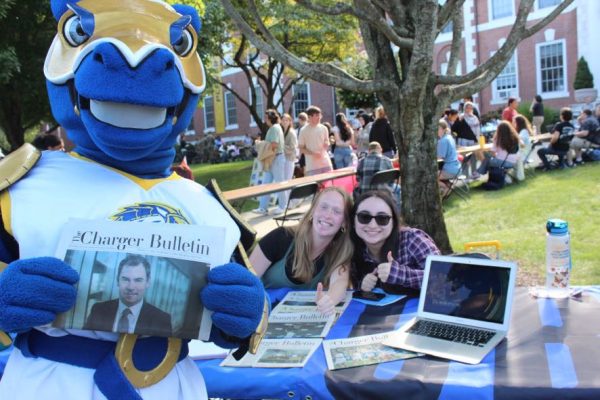Don’t believe everything you read online
On Feb. 13, University of New Haven students were stricken with worry and fear as a rumor spread through the anonymous social media site YikYak of a student jumping off Bergami Hall. There were people describing the scene, with others calling for thoughts and prayers in the moment.
In a moment of limbo, students were left with no knowledge regarding whether the rumor was true or not. While it had rapidly spread throughout the student body, there was no definitive answer.
However, there were no reports of such an incident that night according to the university police department. An investigation of the scene that night also showed no signs of any such thing happening.
Under the cover of anonymity, someone posted a rumor that forced residents of the building to check on their roommates. It was done with blatant disregard for the worries of those on campus, without any concern for the consequences for their actions. And still, with the app remaining anonymous, nothing can be done. It is one thing to use the app for silly jokes, but another to cross a line and start such a rumor.
It also falls on us as an educated student body to be smart with the way we interpret information online. In an age where it is so easy to fabricate a lie, an app like YikYak is dangerous in deceiving a large group of people.
Be wary of what you read or see and where it comes from. Always question it, and check for the source from which it came. This quickly becomes a much broader conversation than just this one instance.
On Oct. 30, 1938, radio listeners in New Jersey tuned in to reports of an alien invasion taking place in their state. They listened as the news channel spoke about an unidentified object at Grovers Mill, with extraterrestrial beings emerging from the smooth ship. Listeners were transfixed on reports of American military members organizing in cities like Philadelphia and Trenton in preparation for an attack.
The story continued, before the voice of director Orson Welles came onto air to announce the program’s end. What listeners just heard was an altered retelling of author H.G. Wells’ “War of the Worlds” novel. However, some listeners panicked, calling into news outlets and police stations across the country to report an alleged “Martian invasion.”
Now, nearly 85 years later, we find ourselves to be susceptible to the same stories on a different medium. In an age with so much information at our fingertips, we are losing the ability to discern the difference between fact and fiction.




